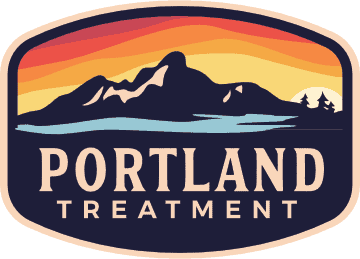Explore cutting-edge Maine Drug Rehab Programs prioritizing Mental Health. Uncover insights on dual challenges and effective treatments. Discover support options, from therapies to research studies. Innovative Drug Rehab Programs in Maine. It delves into the key stakeholders and their role in shaping the future vision of addressing substance misuse and disorders, emphasizing the need for …
Explore cutting-edge Maine Drug Rehab Programs prioritizing Mental Health. Uncover insights on dual challenges and effective treatments. Discover support options, from therapies to research studies. Innovative Drug Rehab Programs in Maine.
It delves into the key stakeholders and their role in shaping the future vision of addressing substance misuse and disorders, emphasizing the need for integrated services and the coordination of health reform and parity laws. Specific suggestions for individuals, families, educators, healthcare professionals, government organizations, private sectors, and researchers are also detailed in this informative piece. Whether you are seeking assistance or looking to contribute to the field, this article presents a wealth of knowledge and recovery resources to support your journey towards wellness.
Introduction to Innovative Drug Rehab Programs with a Focus on Mental Health
Innovative drug rehab programs with a focus on mental health play a crucial role in addressing the complex challenges associated with substance use and co-occurring mental disorders. These programs are designed to provide comprehensive care and support to individuals struggling with substance use while addressing their mental health needs.
Effective drug rehab programs integrate evidence-based treatment strategies to cater to the complex needs of individuals. They emphasize the importance of personalized care, therapy, and support services to address the interconnected challenges of substance use and mental health issues.
Healthcare providers and research institutions play a pivotal role in developing and implementing these innovative programs, constantly refining treatment approaches to improve outcomes for individuals. By addressing both substance use and mental health, these programs offer a holistic approach, promoting long-term recovery and emotional well-being.
Understanding Substance Use and Co-Occurring Mental Disorders
Comprehending the intricate relationship between substance use and co-occurring mental disorders is essential for developing effective interventions and treatment approaches. This understanding forms the cornerstone of providing holistic care and support to individuals facing these interconnected challenges.
The complexities of substance use and co-occurring mental disorders stem from the intricate interplay between biological, psychological, and social factors. Research institutions play a vital role in unraveling these complexities by conducting rigorous studies and clinical trials. These efforts lead to the advancement of knowledge about the underlying mechanisms and the identification of evidence-based interventions.
Through collaborative research, experts delve into the nuanced intersections of addiction and mental health, paving the way for comprehensive treatment models that address the unique needs of each individual.
Overview
An overview of substance use and co-occurring mental disorders encompasses a multifaceted understanding of risk factors, prevention strategies, and the impact on overall well-being and public health.
Substance use can start as a voluntary choice, influenced by various sociocultural, environmental, and genetic factors. Those with a family history of substance abuse, exposure to trauma, or mental health disorders are at an increased risk. Prevention efforts focus on early intervention, education, and access to mental health services.
Addressing co-occurring substance use and mental disorders is critical for public health, as it impacts healthcare systems, social services, and overall well-being. Integrated treatment approaches that consider individual needs and holistic well-being are key for effective interventions.
Diagnosis and Treatment
The accurate diagnosis and effective treatment of substance use and co-occurring mental disorders are pivotal in improving individual outcomes and promoting overall well-being.
Implementing evidence-based interventions and comprehensive care plans is crucial in addressing these complex conditions. Healthcare providers play a key role in offering personalized treatment strategies that integrate both behavioral therapies and medications. This approach not only targets the immediate symptoms but also aims to address the underlying causes of substance use and mental health concerns.
By combining the expertise of professionals across various disciplines, patients can receive holistic care that considers the interconnected nature of these disorders. The integration of behavioral therapies and evidence-based medications has shown promising results in managing the dual diagnosis and improving long-term recovery outcomes.
Behavioral Therapies
Behavioral therapies, including family therapy and cognitive-behavioral interventions, are integral components of comprehensive treatment approaches for individuals grappling with substance use and co-occurring mental disorders. These interventions aim to address underlying psychological factors and promote sustainable recovery.
Family therapy plays a crucial role in involving the support network of individuals undergoing treatment, leveraging the dynamics and interactions within the family to explore and address issues that may contribute to substance use and mental health challenges. This approach fosters improved communication, resolves conflicts, and strengthens family ties to create a conducive environment for recovery.
Cognitive-behavioral interventions, on the other hand, focus on identifying and modifying negative thought patterns and behaviors associated with substance use and mental health issues. By enhancing coping skills, stress management, and problem-solving abilities, individuals can learn to navigate triggers and develop resilience against relapse.
Medications
The use of medications as part of treatment regimens for substance use and co-occurring mental disorders is guided by evidence-based practices and clinical practice guidelines established by organizations such as the National Institute on Drug Abuse. These medications play a critical role in managing symptoms and supporting individuals in their recovery journey.
Medications are tailored to address specific symptoms and underlying neurobiological mechanisms associated with substance use disorders and mental health conditions. They are prescribed to alleviate cravings, manage withdrawal symptoms, and stabilize mood disturbances. Certain medications help in reducing the risk of relapse and preventing the progression of the disorders.
The utilization of medications in conjunction with evidence-based behavioral therapies forms a comprehensive approach to addressing the complex interplay of substance use and mental health issues. It’s crucial for healthcare providers to carefully assess each individual’s unique needs and consider the latest research findings to optimize the medication-assisted treatment for better outcomes.
Finding Help
Seeking help for substance use and co-occurring mental disorders involves accessing treatment referral services and support resources, including the SAMHSA National Helpline, to connect individuals with the appropriate care and assistance tailored to their needs.
It’s essential for individuals facing substance use and mental health challenges to have access to dedicated support systems. The SAMHSA National Helpline operates 24/7, providing confidential and free information in English and Spanish for individuals and family members facing substance use disorders and mental health disorders. It acts as a valuable resource to link individuals with local treatment facilities, support groups, and community-based organizations, guiding them toward recovery and stability.
Joining a Study
Participating in clinical trials and research studies offers individuals the opportunity to contribute to the advancement of knowledge and the development of innovative interventions for substance use and co-occurring mental disorders. These studies play a vital role in shaping future treatment approaches and preventative strategies.
By taking part in these trials, participants not only receive access to potential new treatments but also help researchers uncover better understanding of the complex interactions between substance use and mental health. Furthermore, clinical trials provide a platform for individuals to receive top-quality care under close medical supervision and monitoring, thereby potentially improving their own health outcomes while contributing to the broader scientific community’s knowledge.
The data collected from these studies serves as the groundwork for the development of evidence-based interventions and policies, paving the way for more effective and tailored treatment options for those facing substance use and mental health challenges.
Key Stakeholders and Future Vision
Key stakeholders in the field of substance use and co-occurring mental disorders, including the National Institute on Drug Abuse, National Institute of Mental Health, and SAMHSA, are actively shaping a future vision that prioritizes innovative research, data strategies, and evidence-based practices to address these critical public health concerns.
Collaborative efforts among these agencies and other research institutions play a pivotal role in advancing understanding and treatment of substance use and co-occurring mental disorders. By pooling resources and expertise, they strive to optimize preventive measures, treatment modalities, and support services for individuals facing these complex challenges.
Integrating interdisciplinary perspectives, they aim to develop comprehensive, holistic approaches that consider the nuances of co-occurring conditions and their impact on overall well-being. These initiatives underscore the commitment to leveraging scientific insights, innovative technologies, and community-based interventions to make meaningful strides in addressing the interconnected issues of substance use and mental health.
Effective Strategies for Addressing Substance Misuse and Disorders
Implementing effective strategies to address substance misuse and disorders requires a comprehensive understanding of behavioral health statistics, risk factors, and evidence-based interventions. These strategies aim to proactively prevent and mitigate the impact of substance use and co-occurring mental disorders within communities.
Prevention plays a vital role in addressing substance misuse and disorders, as it focuses on deterring the initiation of substance use and reducing the risk of developing associated problems. By utilizing evidence-based interventions, including cognitive-behavioral therapy, motivational interviewing, and medication-assisted treatment, individuals can receive comprehensive and tailored support to address their unique needs.
Understanding the behavioral health statistics helps in identifying trends and patterns, which is crucial for the development and implementation of targeted prevention strategies.
Integration of Services for Substance Use Disorders with Healthcare
The integration of services for substance use disorders with healthcare settings, including the Emergency Department, is essential in ensuring timely and comprehensive care for individuals in need. Collaborative approaches that bridge behavioral health and medical services can significantly improve outcomes for those facing substance use challenges.
Integrating services for substance use disorders into healthcare settings recognizes the interconnected nature of physical and mental health. Many individuals with substance use disorders present at emergency departments, and by integrating services, healthcare professionals can provide more holistic and effective care.
By combining expertise from both behavioral health and medical professionals in the emergency care context, a multidisciplinary approach can be implemented, addressing not only the immediate medical needs but also the underlying behavioral and psychological health factors contributing to the substance use disorder.
Coordination and Implementation of Health Reform and Parity Laws
The coordination and implementation of health reform and parity laws play a pivotal role in ensuring equitable access to comprehensive care and support for individuals with substance use and co-occurring mental disorders. These efforts aim to address systemic barriers and promote a more inclusive approach to mental health and addiction treatment.
Health reform initiatives seek to dismantle structural obstacles that hinder individuals with substance use and mental health challenges from obtaining essential care. Concurrently, parity laws play a crucial role in ensuring that insurance coverage for these conditions is on par with coverage for other medical conditions, fostering equity in the healthcare system.
An integrated approach to addressing mental health and substance use disorders is essential for comprehensive and effective treatment. Implementing parity laws alongside health reform supports the development of a more inclusive and accessible care system, where individuals can seek and receive the necessary support without facing discriminatory barriers.
Need for Future Research in Substance Misuse and Disorders
The need for future research in the field of substance misuse and disorders is paramount in advancing our understanding of effective interventions, risk factors, and preventative measures. Organizations such as the National Institute on Drug Abuse and National Institute of Mental Health play a critical role in driving research agendas to address these pressing public health challenges.
Further investigation is required to explore the nuanced association between genetic predisposition and environmental factors in the development of substance use disorders. Additionally, research institutions need to delve into the utilization of advanced neuroimaging techniques to comprehend the neurobiological mechanisms underlying addiction and its treatment.
Ongoing initiatives should incorporate multi-disciplinary collaboration to investigate the complex interplay of social, economic, and psychological determinants influencing substance misuse and its implications for public health. Research efforts need to extend beyond treatment outcomes to examine long-term consequences and optimize relapse prevention strategies.
Specific Suggestions for Key Stakeholders
Specific suggestions for key stakeholders, including individuals and families, healthcare professionals, government and community organizations, private sector entities, and researchers, can contribute to a collective effort in addressing substance use and co-occurring mental disorders. Collaborative engagement and tailored strategies for each stakeholder group can drive meaningful progress in this domain.
For individuals and families, raising awareness about the interconnectedness of substance use and mental health is pivotal. Providing accessible resources for early intervention and support, such as helplines and counseling services, can aid in addressing these complex issues.
Healthcare professionals should focus on integrated screening and personalized treatment plans, emphasizing holistic care that addresses both substance use and mental health concerns.
Government and community organizations can foster partnerships to improve access to mental health and substance use services, while also advocating for policies that prioritize prevention and harm reduction.
Private sector entities play a crucial role in promoting workplace wellness programs and fostering a supportive environment that encourages seeking help for substance use and mental health challenges.
Researchers are key in driving evidence-based practices, conducting comprehensive studies, and developing innovative interventions that address the complex interface of substance use and mental disorders.
Individuals and Families
Individuals and families can play a pivotal role in prevention efforts and seeking support for substance use and co-occurring mental disorders. Accessing resources such as the National Helpline and being aware of risk factors can give the power to them to take proactive steps towards recovery and well-being.
Recognizing the signs of substance use and mental health issues within the family unit is vital. Open, non-judgmental communication can help individuals feel supported and understood, fostering a safe space for seeking help. Educating oneself and loved ones about the effects of substance use and mental health disorders is crucial in early intervention. Utilizing community programs and support groups can create a network of shared experiences and advice, reinforcing the journey towards healing and resilience.
Educators and Academic Institutions
Educators and academic institutions play a vital role in advancing prevention efforts and fostering research initiatives related to substance use and co-occurring mental disorders. Integrating evidence-based practices into educational curricula and supporting research endeavors can significantly contribute to addressing these public health concerns.
Educators are at the forefront of shaping students’ knowledge and attitudes toward prevention and mental well-being. They can give the power to students with the necessary skills to make informed decisions, recognize risk factors, and seek support when needed. By incorporating substance use and mental health education into the academic curriculum, academic institutions can create safe and supportive environments that promote healthy behaviors.
Research initiatives led by educational institutions are crucial in understanding the underlying causes and patterns of substance use and mental disorders among students. Collaboration between educators and researchers helps in implementing evidence-based interventions, conducting prevalence studies, and identifying effective strategies for early detection and intervention.
Healthcare Professionals and Professional Associations
Healthcare professionals and professional associations have a critical role in delivering comprehensive care and advocating for evidence-based treatment approaches for substance use and co-occurring mental disorders. Collaboration with research entities such as the National Cancer Institute and resources like Clinicaltrials.gov can enhance their efforts in this domain.
Healthcare professionals play a pivotal role in providing holistic and individualized care for individuals dealing with substance use and co-occurring mental disorders. By staying abreast of the latest research findings and treatment modalities, they can offer patients the most effective interventions. Professional associations, through their advocacy and education initiatives, contribute to the dissemination of evidence-based practices and foster collaboration among practitioners.
The integration of evidence-based treatment models not only improves patient outcomes but also promotes a cohesive approach to addressing these complex conditions. By leveraging partnerships with organizations and research institutions, healthcare professionals can harness valuable resources and data, ultimately enhancing their ability to tailor treatment plans to the diverse needs of their patients.
Government and Community Organizations
Government and community organizations are instrumental in facilitating treatment referral pathways and providing quality leads for individuals in need of support for substance use and co-occurring mental disorders. Collaborative initiatives with agencies such as SAMHSA can strengthen the support network available to the community.
By working together, these organizations can create more accessible pathways to treatment and support, connecting individuals with the quality care they require. Through collaborative efforts, they can also develop comprehensive intervention strategies that address the complex nature of co-occurring disorders.
Government and community organizations play a crucial role in raising awareness and providing education about the risks associated with substance use and mental health conditions.
Private Sector: Industry and Commerce
The private sector, including industry and commerce, can contribute to addressing substance use and co-occurring mental disorders through initiatives such as FentAlert and support for research endeavors. Leveraging data strategies and innovative approaches can enhance the impact of their contributions to this critical public health domain.
Private sector engagement in combatting substance use and mental disorders can yield significant benefits. FentAlert, for instance, exemplifies a public-private partnership aiming to detect fentanyl in the illicit drug market, thereby curbing the opioid epidemic. The private sector’s financial backing for research can catalyze discoveries in treatment and prevention methodologies. Data analytics and strategic utilization can provide actionable insights, aiding in resource allocation and targeted intervention planning, thus amplifying the effectiveness of private sector involvement.
Researchers
Researchers play a pivotal role in advancing knowledge and informing evidence-based practices for substance use and co-occurring mental disorders. Utilizing resources such as the National Library of Medicine and adhering to clinical practice guidelines contribute to the integrity and impact of their research endeavors in this critical public health domain.
Through their dedication, researchers continuously seek to expand the understanding of mental health and substance use, striving to improve intervention strategies and treatment outcomes. The utilization of research resources allows them to access a wealth of data, from scholarly articles to clinical trials, ensuring that their work is rooted in the most current and relevant information available. By upholding clinical practice guidelines, researchers ensure that their findings have practical applicability, aiming to bridge the gap between research and real-world treatment approaches.
Conclusion and References
Addressing substance use and co-occurring mental disorders necessitates a multifaceted approach that encompasses preventative measures, quality research, and the provision of comprehensive care and support. References from reputable sources and research endeavors play a pivotal role in informing and guiding interventions in this critical public health domain.
Understanding the complex interplay between substance use and mental disorders is crucial for effective treatment and support. Implementing comprehensive care models that integrate evidence-based research can significantly improve outcomes for individuals grappling with these challenges.
Prevention strategies, early intervention, and ongoing support mechanisms are essential in mitigating the impact of substance use and co-occurring mental disorders on individuals, families, and communities. Collaboration among healthcare professionals, policymakers, and support networks is imperative in shaping holistic approaches to address these interconnected issues.
Recovery Resources and Support Services
Accessing recovery resources and support services, including helplines such as the SAMHSA National Helpline and the 988 Suicide & Crisis Lifeline, is essential in give the power toing individuals to navigate their journey towards recovery and well-being from substance use and co-occurring mental disorders.
These helplines offer confidential assistance, information, and referrals to local treatment facilities, support groups, and community-based organizations that specialize in helping individuals struggling with substance use disorders and mental health challenges.
Plus helplines, support networks like Alcoholics Anonymous (AA) and Narcotics Anonymous (NA) provide peer support and a sense of community for individuals in recovery.
Comprehensive and Compassionate Addiction Treatment at Portland Treatment in Maine
At Portland Treatment in Maine, we are deeply committed to providing comprehensive and compassionate care for those struggling with addiction. Our approach is holistic, focusing on the individual as a whole, rather than just the symptoms of addiction. We understand that each journey to recovery is unique, and our expert team is dedicated to creating personalized treatment plans that cater to the specific needs and circumstances of each client.
Our facility offers a wide range of services designed to support individuals at every stage of their recovery journey. From initial detoxification to inpatient rehab, outpatient programs, and ongoing aftercare support, we ensure a continuum of care that fosters lasting recovery. Our treatment modalities include evidence-based therapies, innovative treatment techniques, and holistic approaches that encompass mental, physical, and emotional health.
Recognizing the importance of a supportive environment in the recovery process, Portland Treatment provides a nurturing and safe space where individuals can heal and grow. Our programs are designed to empower clients, helping them develop the skills and resilience needed to overcome addiction and rebuild their lives. Family involvement is also a key component of our approach, as we believe in healing and strengthening family relationships as part of the recovery journey.
At Portland Treatment, we pride ourselves on our team of highly qualified professionals who bring a wealth of experience and expertise to our programs. Our staff includes licensed therapists, medical professionals, and addiction specialists who are passionate about helping individuals achieve sobriety and wellness. We are constantly evolving our practices to incorporate the latest research and best practices in addiction treatment, ensuring the highest standard of care for our clients.
Choosing Portland Treatment in Maine means choosing a path to recovery that is supported by expertise, compassion, and a commitment to excellence. We are not just a treatment center; we are a community dedicated to helping individuals and their families overcome the challenges of addiction and move forward to a brighter, healthier future.






